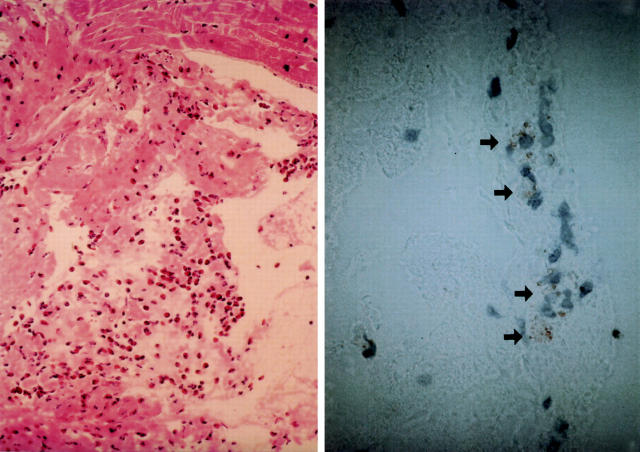Abstract
A case of eosinophilic myocarditis following high serum levels of eosinophil cationic protein (ECP) is described. A 27 year old woman was admitted with New York Heart Association (NYHA) class III congestive heart failure. A haematological study showed hypereosinophilia with degranulation and vacuoles; the total eosinophil count was 7980/ml and the ECP serum concentration was noticeably high at 150 ng/ml. Endomyocardial biopsy from the right ventricle showed infiltration of eosinophils and dense deposits of ECP in the endocardium as well as the myocardium. Steroid treatment returned the total eosinophil count and serum ECP to normal, with satisfactory improvement in clinical features. Eosinophilia may cause cardiac damage, and this report confirms that eosinophil degranulation is toxic. Thus, serum ECP seems to be a reliable indicator for diagnosis and for determining treatment parameters of eosinophilic myocarditis. Keywords: eosinophilic myocarditis; eosinophilia; eosinophil cationic protein; endomyocardial biopsy
Full Text
The Full Text of this article is available as a PDF (87.8 KB).
Figure 1 .
Endomyocardial biopsy (left) from the right ventricle showing slight necrosis and degeneration of myocytes, interstitial fibrosis, and infiltration of lymphocytes admixed with marked eosinophils (haematoxylin and eosin stain, original magnification × 40). Immunostaining with EG2 (arrow) (right), a monoclonal antibody directed against the secreted form of ECP, showed a great number of activated eosinophils (original magnification × 100).



